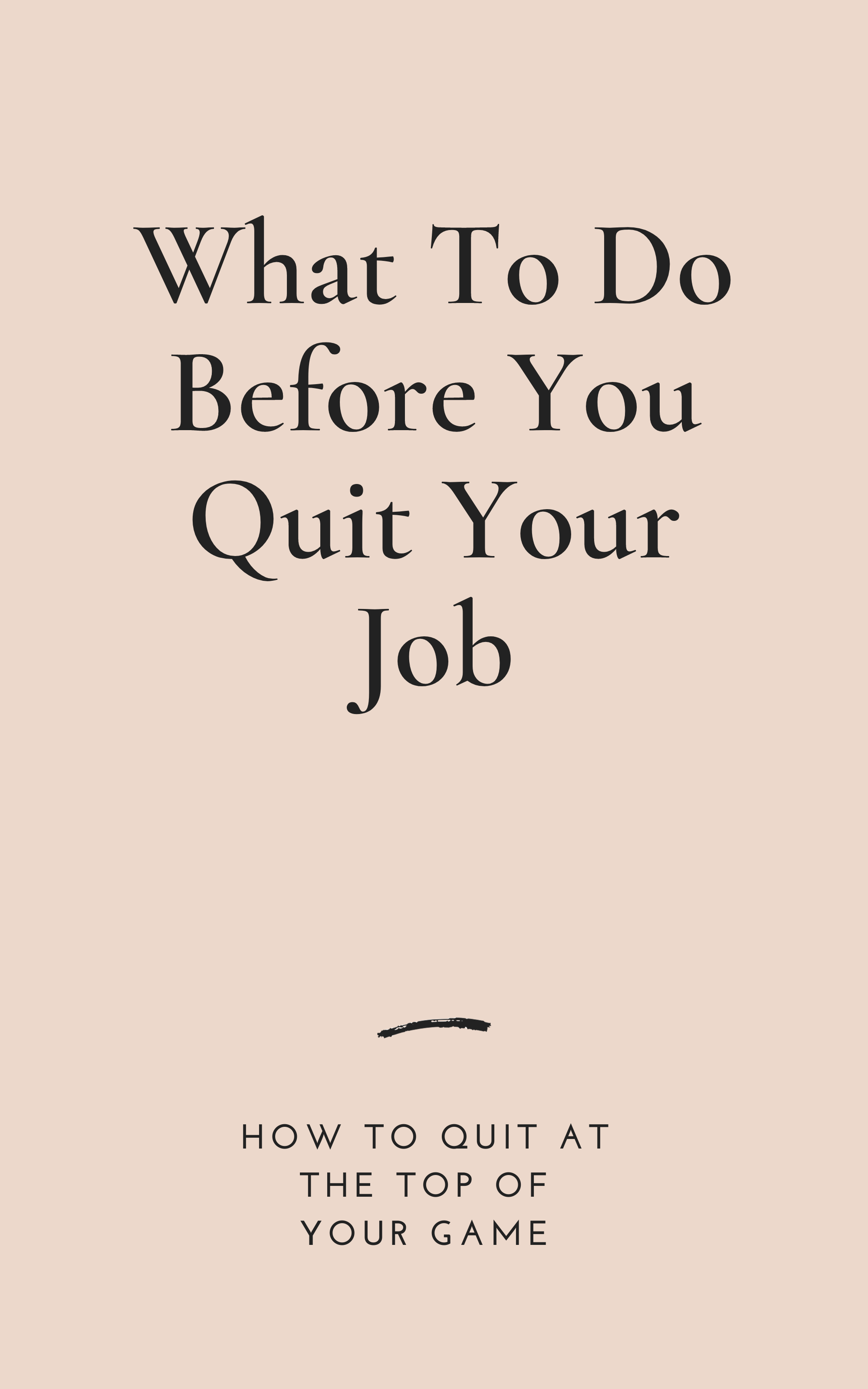Quit on Your Best Day
Hit your breaking point at work? You’re overworked, disconnected, and exhausted, and you just can’t imagine taking it for one more day.
Sure, there are cases where you’re leaving your job because another opportunity came along. If you’re in a space of desperation and ready to quit, you’re probably at a super low point and not really thinking about being strategic about your departure.
But leaving your current job when you’re at your worst leads you to start your next step in that same disempowered mindset. No bueno! So before walking out the door (ok, more like an Olympic-level sprint to the exit), follow these five steps for quitting on your BEST day.
1. List your responsibilities.
Take some time to write down all the work that you've done over the course of your time at the company. This will come in super handy when you're updating your LinkedIn page and prepping for upcoming interviews. Plus, seeing everything you’ve learned and how much you’ve grown through this role will give you a huge confidence boost.
2. Quantify your results.
Once you're done accounting for all the daily to-dos, think about everything that you accomplished during your tenure - and put a number on it. Saying that you increased sales by 30% or grew the company social media page by 12,000 followers will be valuable performance markers to share with your future employer (*definitely* add these to your CV). Goodbye imposter syndrome!
3. Take it with you.
If you've got some great work products saved on your work computer, make sure that you make copies to send to yourself (within company policy, of course). This includes any papers you've written, design projects, client work - anything that you can include in a portfolio or even just reference after you leave.
4. Don't burn your bridges!
If you have trusted colleagues or leaders within your org, exchange contact details. Even if you had a bad apple of a boss or a mean girl colleague, you’ve made it this far with the support of at least a couple quality folx. You never know when you'll need a reference or potentially even help a former work bestie get their own new job. Keep them in your corner and remind yourself to check in regularly.
5. Train your successor.
In all likelihood, you won't be replaced in the 2 weeks following your resignation (unless they can hire quickly from within), and directly training them may not happen. But you CAN take some time to download your work brain to help the next person - include helpful tools and resources, passwords, client/manager intel and preferences, and anything else that could be helpful to the newbie who has the unenviable position of trying to fill your shoes. While you might not feel like you're in such a giving mood, think about the fact that you're putting some seriously good karma out in the world.
Most importantly, go out on a high note. Leave knowing that you learned everything that you could from this role. Thank your boss and coworkers for everything they've done for you. Be gracious about your departure. Agree to an exit interview if it's offered. And write a balanced review on a site like Glassdoor to give future employees an idea of what to expect.
Now, go forth and make your next move boldly and with intention.
